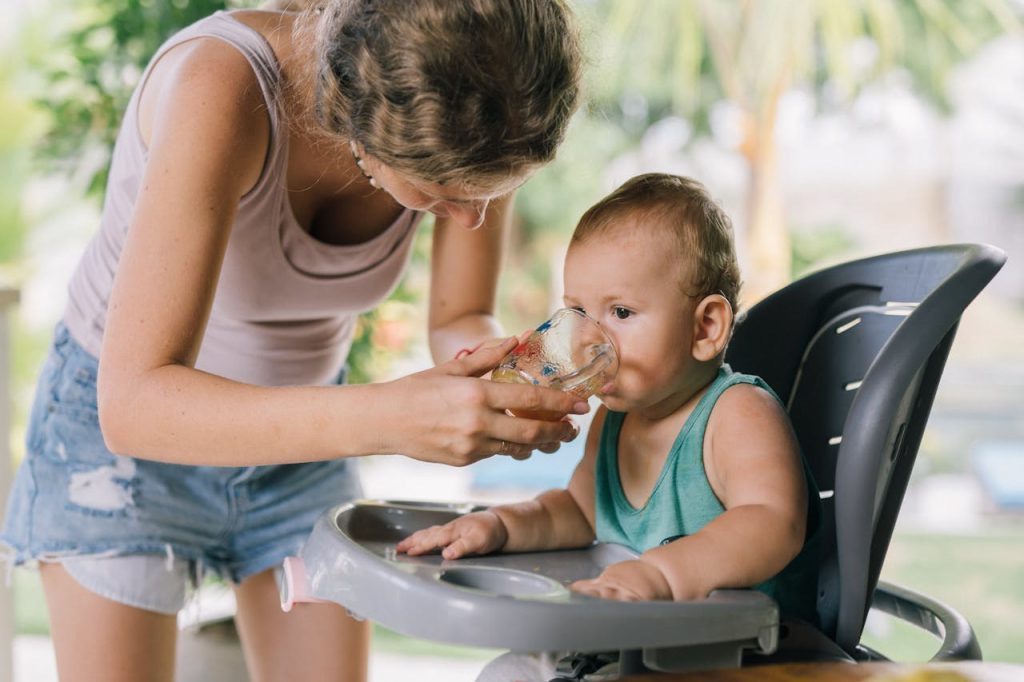
Drink Plenty of Water
Ensuring that your baby drinks plenty of water is essential for their overall health and well-being. Here’s why hydration is important for babies and how you can help them stay adequately hydrated:
Importance of Water for Babies
Hydration
Water is essential for maintaining proper hydration levels in babies, supporting bodily functions like digestion, circulation, and temperature regulation.
Temperature Regulation
Babies are more susceptible to dehydration and heat-related illnesses due to their smaller body size and higher surface area to body mass ratio. Drinking water helps regulate their body temperature, especially in hot weather.
Kidney Function
Adequate hydration supports the proper functioning of the kidneys, allowing them to filter waste products from the blood and maintain electrolyte balance.
Digestion
Water plays a crucial role in digestion, helping soften food in the stomach and facilitating the absorption of nutrients in the intestines. It also prevents constipation by keeping stool soft and easy to pass.
When to Introduce Water to Babies
Under 6 Months
Exclusive breastfeeding or formula feeding provides all the necessary fluids and nutrients for babies under six months of age. Water is generally not needed during this time unless recommended by a healthcare professional in specific circumstances.
6 Months and Older
Once babies start eating solid foods, small amounts of water can be introduced to complement breast milk or formula. Gradually offer water in a sippy cup or bottle during meals and throughout the day.
How to Offer Water to Babies
Start Slowly
Begin by offering small amounts of water, especially if your baby is not used to drinking from a cup or bottle. Gradually increase the amount as your baby becomes more comfortable with drinking water.
During Meals
Offer water during and between meals to encourage regular hydration. Babies may be more willing to drink water when they see others doing the same.
Monitor Hydration
Pay attention to your baby’s cues for thirst and monitor their hydration by checking the frequency and color of their urine. A well-hydrated baby will have pale urine and produce an adequate number of wet diapers throughout the day.
Avoid Overfeeding
While it’s essential to ensure that your baby drinks enough water, avoid force-feeding or overfeeding water, as this can lead to water intoxication or electrolyte imbalances.
Signs of Dehydration in Babies
- Dry mouth and lips
- Fewer wet diapers or concentrated urine
- Sunken fontanelle (soft spot on the baby’s head)
- Irritability or fussiness
- Lethargy or decreased activity
Conclusion
Ensuring that your baby drinks enough water is crucial for their health and well-being, supporting proper hydration, digestion, and overall bodily functions. By introducing water gradually and monitoring your baby’s hydration needs, you can help them stay adequately hydrated and thriving as they grow. Always consult with your pediatrician if you have any concerns about your baby’s hydration or overall health.







